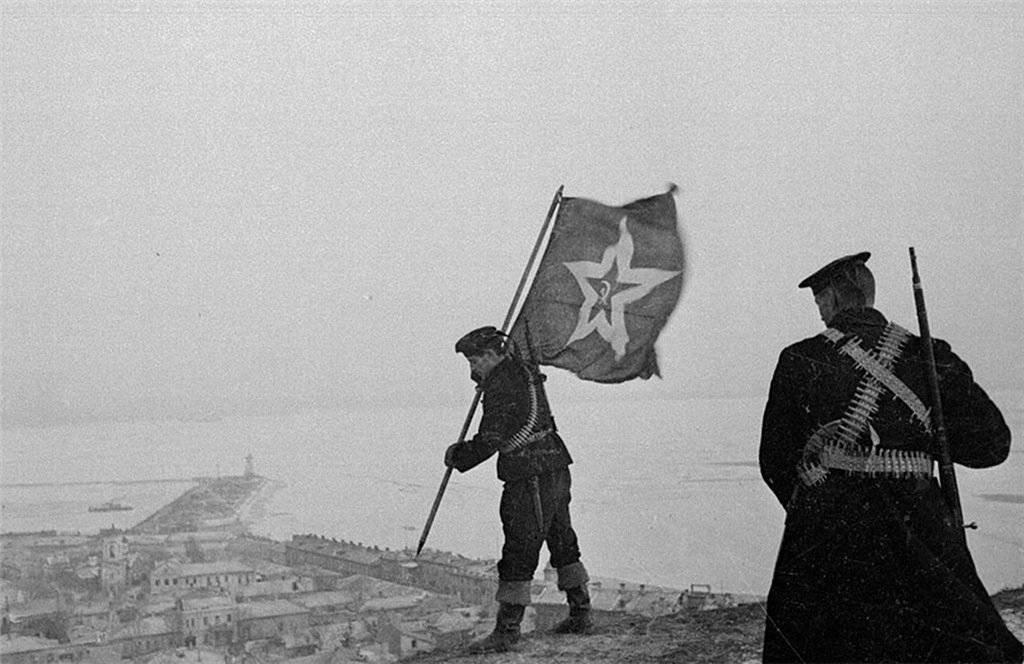1/ Mobilised Russian soldiers are reported to have been 'sold' to the Wagner Group when they arrived in Ukraine. More than 100 are said to have gone missing in the Luhansk region after refusing to sign mercenary contracts. One man says they fear they will be killed by Wagner.
2/ According to the independent ASTRA media group, on 5 April 2023 around 500 mobilised Russians, mostly from the Moscow, Voronezh and Tver regions, were flown from Kursk to Rostov-on-Don, purportedly for training and attachment to a local military unit.
3/ However, ASTRA reports, about 170 of the men were taken at night to the Stakhanov Carriage Works near Luhansk and told to sign contracts with Wagner representatives. 57 men who agreed were assigned to a new 'Wolves' private military company and were taken away.
4/ One soldier told a relative: "We have no choice. Those who said no, they've already been taken, I don't know what's happening to them now. It's the Wagners who have arrived.
5/ "You see, they don't give a fuck at all, they're going to (kill) us now and throw us out in the field and that's it."
6/ Another soldier says he and his comrades were ordered to sign at gunpoint: "They're already driving us [with] automatic weapons, the pressure has started here. Representatives of the Wagner PMC arrived with guns, there are about 30 of them.
7/ Now they just want to twist and turn [us], they want to take us to some firing range, they started to apply pressure. We ask: "Where are our military personnel?" and they say: "What the fuck do you need them for?"
8/ We have been depersonalized, we do not have military IDs, they have brought people with weapons and as far as I understand our phones will be taken away and we will not be able to communicate."
9/ One man told his mother: "There are 150 of us locked up in a wagon repair plant, we were bluntly sold, and we didn't agree to it ... But these issues are not resolved that easily.
10/ "They take 150 people for a sucker and send them to the Southern Military District with the words that "there you will be transferred to a military unit and will undergo training, and from then on you will perform the function of territorial defence."
11/ "But it turns out we are already 'behind the tape' and without documents."
Additional pressure was put on the men by the former President of South Ossetia, Lieutenant General Anatoly Bibilov, who was filmed haranguing the mobiks last week.
Additional pressure was put on the men by the former President of South Ossetia, Lieutenant General Anatoly Bibilov, who was filmed haranguing the mobiks last week.
https://twitter.com/revishvilig/status/1644787478765682693
12/ Bibilov told the men that they were being sent to the "3rd Army Corps" and that "the instructors are from the PMCs, because they are experienced fighters". He condemned the men as "cowards" and urged them to "defend their homeland".
13/ Although the men were being accompanied by another officer, Lieutenant Colonel Vladislav Fedotov, Bibilov criticised Fedetov for saying that the mobiks should not be there. The military prosecutor's office agreed with Fedetov, saying that the men were there illegally.
14/ The mobiks were informed that they would be returned to Rostov on the morning of 7 April, according to a relative. One of the men made a statement and was brought back to the wagon plant. However, the military prosecutor appears to have been 'dealt with'.
15/ "No one came for them in the morning", ASTRA reports. The men "telephoned the military prosecutor's office again, to which they were initially told that "there were not enough vehicles in the Southern District", and later that "there was nothing they could do".
16/ 113 of the men who refused to sign mercenary contracts are reported to have been taken to a training ground near the border village of Krasna Talivka. They informed their relatives that their phones were being confiscated and have not been heard from since.
17/ The Rostov garrison has disclaimed any knowledge of the 500 men. The fate of the other 330 is not known. /end
Source:
telegra.ph/Nas-prodali-v-…
Source:
telegra.ph/Nas-prodali-v-…
• • •
Missing some Tweet in this thread? You can try to
force a refresh

 Read on Twitter
Read on Twitter







